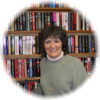Not Weakness, Navigating the Culture of Chronic Pain – Francesca Grossman’s book is more than memoir or self-help. It is an honest exploration of the effects of suffering from chronic pain as experienced by women.
Not Weakness, Navigating the Culture of Chronic Pain – memoir or self-help? A little bit of both, but not in the way you’d think. The key clue is the word “Culture.” Francesca Grossman has suffered from chronic pain for twenty-six years. So, is the reader in for 165 pages of whining and sympathy-seeking? Or are we to be introduced to myriad ways to deal with chronic pain? And lastly, is this a book to be read only by those suffering from any number of illnesses that come attached to a lifetime of chronic pain? No, to all the above.
It is Grossman’s “Preface” that gives us the first clue that this book is not about the pain she and others have and continue to have but is about how the rest of the world perceives their pain and its effects. At a “routine checkup,” she was asked if she had any pain. Her answer: “Nothing acute.” The technician’s response: “So no pain?” Grossman knew “. . . anything under five wasn’t worth her [the technician] noting” and anything over five would have been taken as an “alarmist” response. When being treated post-surgically, a nurse, with some impatience, told her “Pain is weakness leaving the body, my love.” Mind you, this was said to a twenty-nine-year-old woman, not a child. There you have the title of this intriguing book, Not Weakness, Navigating the Culture of Chronic Pain.
Grossman kept a journal, not only recording her bouts with pain but its isolating effects, which are not easily managed in her professional and personal life (married and mother of two). She began to wonder if other sufferers feel the same isolation and, if so, how they deal with it in their lives. Statistically, in the U.S., fifty million people live with chronic pain. As shocking as that number might seem, even more shocking is that 70% of those sufferers are women. Male or female, “Pain distances us from those we love, igniting cynicism, depression, and loneliness.” Wanting to write about that 70%, she set out to gather interviews. Not Weakness, the Culture of Chronic Pain opens the lives of some of those women to the rest of us.
As a book reviewer whose least favorite genre is self-help, and not far behind that, is memoir wrapped in suffering, I accepted Grossman’s book from her publicist with no promise of a review. Even before reading the Preface, the Contents told me I was in, totally in. Grossman is direct and pulls no punches: “Silencing: When Suffering Is Dismissed and Ignored; Mental Illness: The Link Between Our Minds and Our Bodies; Fat: Overweight and Underdiagnosed; Wellness: In Pursuit of Our Best Selves.” There is not one chapter that cannot be intimately familiar to almost any female reader. The chapter on Pain Pills: The Line Between Dependency and Addiction, spoke to me personally as a family member is currently dealing with cancer treatment and its necessity of pain management.
Some women are quoted more than once, giving them a more personal recognition by the reader. All their voices are welcomed and are as individual as the diseases from which their pain comes. How these women deal with lives often put on hold is as admirable as heartbreaking. The author’s own voice, in her commentary on what each respondent shares, is steeped in respect and appreciation. Alarming, but not surprising to any woman whose complaints have fallen on near-deaf medical ears, is the fact that female-related all medical treatment, research, and education is still behind that of males. She gives credit where credit is due, but she does not shy away from cautionary facts. Not only does the world of medicine need to learn to listen beyond hearing, those of us with friends or family dealing with pain, chronic or otherwise, need to listen with patient and caring ears.
My recommendation is that Not Weakness, Navigating The Culture of Chronic Pain should be read by all (female and male) of us who are a part, knowingly or not, of that culture. And I would personally recommend every woman read it before she makes her next doctor’s appointment. -Sunny Solomon
Also available by Francesca Grossman: Writing Workshop.
Bookin’ with Sunny strongly supports Independent Bookstores and Public Libraries.









